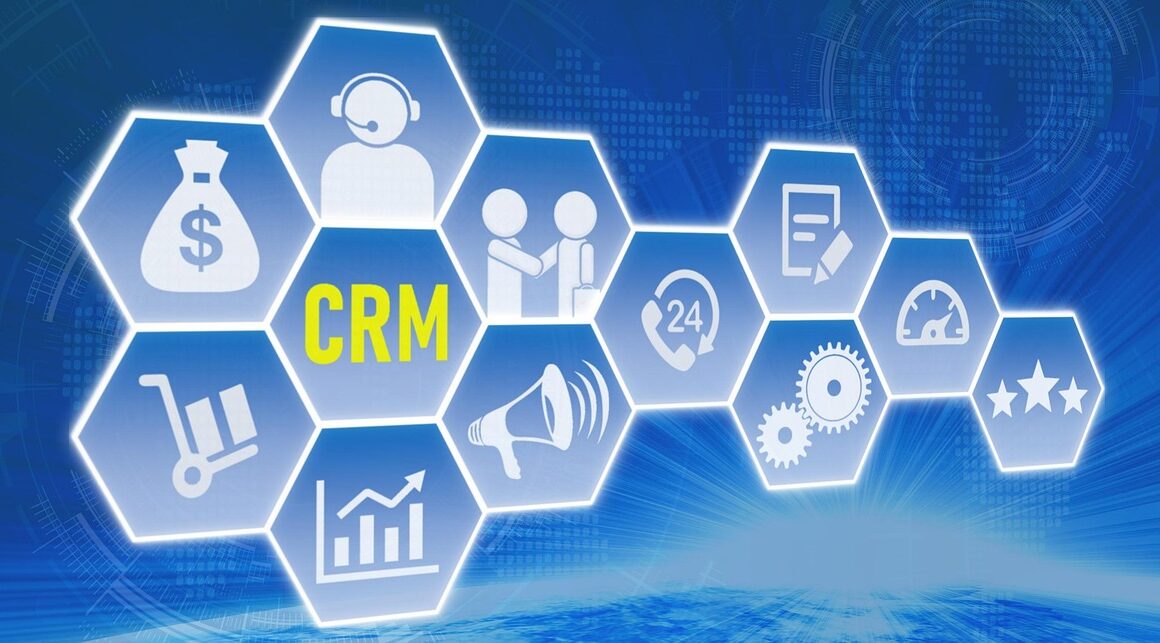Top Features to Include in Your CRM Customizable Dashboards
In the world of Customer Relationship Management (CRM), customizable dashboards serve as visual interfaces that help monitor key performance indicators essential for your business’s success. By offering a tailored view of your CRM data, these dashboards empower users to concentrate on what matters most. One fundamental feature to include is the data visualization tool, allowing users to see their metrics in real-time using dynamic charts and graphs. These visual components help in quickly identifying trends and patterns, making data interpretation effortless. Furthermore, customizable dashboards should enable drag-and-drop functionalities, allowing users to modify layouts without technical assistance. Flexibility in viewing filters, such as date ranges and sales stages, also adds user-centric flexibility. Furthermore, integrating alerts and notifications into dashboards ensures that teams are informed about critical changes instantly. These, combined with data drill-down options, empower sales teams to delve deeper into specific information. Additionally, offering personalized widgets tailored for individual users can enhance a user’s experience by providing relevant data at a glance. All these features contribute to maximizing productivity and improving decision-making.
Another pivotal feature is the incorporation of interactive elements within the dashboard. Allowing users to interact with graphs and charts provides an engaging way to explore various dimensions of data. For instance, clicking on a specific data point can lead to more detailed insights, enabling users to analyze customer interactions in depth. This feature not only enhances usability but also ensures that users can extract meaningful information without having to navigate away from the dashboard. Moreover, including collaborative tools allows team members to share insights in real-time. Users can add comments, ask questions, and even bookmark important data points for others to review. This fosters a collaborative culture within the organization. Another key aspect is ensuring mobile responsiveness. Given that many sales professionals are on the move, a dashboard that functions seamlessly on mobile devices is crucial. Users must be able to access their data anywhere, anytime without losing functionality. Lastly, integrating external data sources into the dashboard broadens the scope of analysis. This inclusion ensures that teams can leverage a more holistic view of customer interactions, ultimately leading to more informed strategies.
Advanced Analytics and Reporting
When designing your CRM customizable dashboards, incorporating advanced analytics features is a game-changer. Predictive analytics can help businesses anticipate future trends, allowing them to adapt their strategies accordingly. This capability is rooted in historical data analysis, which provides insights into customer behavior patterns. Having this feature in your dashboard enables sales teams to focus on high-priority leads likely to convert, optimizing their efforts and resources. Additionally, integrating AI-driven recommendations can further enhance decision-making. By analyzing past interactions, AI can suggest potential actions or follow-up strategies tailored to each customer. Businesses can also benefit from incorporating a seamless reporting function into their customizable dashboards. This feature allows users to generate insights quickly on various metrics. Automated reporting features can save significant time, making it easy for teams to stay updated on performance without manual data collection. Moreover, including options for exporting data into different formats increases utility and flexibility, allowing users to easily share insights with stakeholders. These advanced analytics capabilities transform a standard dashboard into a powerful tool for driving business growth and accountability.
Security features must not be overlooked when designing your CRM customizable dashboards. As sensitive customer data is often stored and analyzed within these systems, robust security measures are essential. Implementing role-based access ensures that only authorized personnel can view particular information, protecting privacy and confidentiality. It allows businesses to maintain compliance with regulations such as GDPR. Additionally, incorporating data encryption within the dashboard prevents unauthorized access to data, ensuring that data remains secure at all times. To enhance user confidence, providing detailed audit trails on data access and changes is crucial. Users should be able to review who accessed which data and when, fostering accountability within the team. Furthermore, offering backups and recovery options as part of your dashboard feature set can prevent data loss in unforeseen circumstances. A well-structured incident response plan integrated into the CRM system also ensures quick action against data breaches. Comprehensive security features demonstrate a commitment to data protection, which is critical for building trust with customers. In today’s digital landscape, ensuring robust security is not just an option; it is a necessity for any CRM customizable dashboard.
Integration with Other Tools
Furthermore, seamless integration with other systems is paramount for effective CRM customizable dashboards. Businesses often rely on various software for different functionalities, such as marketing automation, email communication, and project management. Therefore, the ability to integrate these tools within a customizable dashboard enhances workflow efficiency. For instance, integrating email platforms enables teams to track customer interactions directly from the dashboard, providing a comprehensive view of customer relationships. Similarly, syncing data with marketing automation tools can optimize lead management processes, allowing sales representatives to see which campaigns are generating the most leads. Furthermore, having API access will enable organizations to connect with third-party applications easily. This versatility ensures that users can enrich their dashboards with additional functionalities tailored to specific needs. Moreover, effective CRM dashboards should support import/export features for data, allowing for smooth transactions across different systems. By ensuring that your dashboard can facilitate these integrations, you improve the overall user experience and empower teams to make informed decisions based on complete data sets. Consequently, businesses can respond better to customer needs and improve satisfaction.
Another significant aspect is the interface design of the customizable dashboards. While functionality is key, the user experience must also be top-notch to ensure high engagement levels. A clean, intuitive design allows users to navigate the dashboard easily, helping them locate necessary functions swiftly. Using color schemes that enhance readability while keeping the display visually appealing can also impact how users interact with data. Offering customizable layouts, where users can rearrange widgets based on personal preferences, adds a layer of personalization that users appreciate. A clutter-free environment is vital; therefore, essential items should be prioritized. Furthermore, utilizing tooltips or hover explanations for complex features can assist users unfamiliar with the dashboard, reducing the learning curve significantly. Including a customizable theme can further enhance the interface; allowing users to personalize their views according to their organizational culture instills greater ownership of their dashboard. By prioritizing user experience in design, companies ensure their CRM dashboards are not only functional but also enjoyable to use. This results in increased levels of engagement and satisfaction from team members, ultimately leading to better business outcomes.
Customer Feedback Integration
Finally, integrating customer feedback mechanisms should not be overlooked when creating CRM customizable dashboards. Having features that allow users to solicit and act upon customer feedback enables organizations to cultivate better relationships with their clientele. This could include simple feedback forms directly integrated into the dashboard interface. Collecting real-time feedback and addressing concerns promptly helps in building trust and loyalty among customers. Moreover, analyzing the feedback through your dashboard can provide significant insights into customer preferences and pain points. Advanced dashboards could even feature sentiment analysis tools that assess feedback intensity, providing actionable insights instantly. Additionally, showcasing customer testimonials or success stories directly on the dashboard can motivate sales teams and inspire them to perform better. Such elements do not only reinforce a customer-centric approach but also cultivate a culture of continuous improvement within the organization. By responding to customer feedback diligently, organizations showcase their commitment to meeting customer needs. Therefore, it rounds up the comprehensive feature set in customizable dashboards, rendering them indispensable tools in managing customer relationships effectively.
Ultimately, the combination of all these essential features creates a robust CRM customizable dashboard experience. When designed thoughtfully with the user’s needs in mind, these dashboards play a critical role in empowering your teams to manage customer relationships effectively. By incorporating data visualization tools, user interactivity, advanced analytics, security measures, seamless integrations, an intuitive interface, and customer feedback, organizations can maximize the potential of their CRM systems. The enhanced productivity, informed decision-making, and improved customer satisfaction lead to significant advantages. Customizable dashboards not only streamline operations but also foster a culture of collaboration and alignment among teams. They provide a singular view where all relevant information is accessible, driving performance to new heights. From enabling quick access to vital customer data to promoting real-time analytical insights, the right set of features turns a basic dashboard into a dynamic tool for business strategy and growth. Therefore, investing time in defining what features to include in your CRM customizable dashboards can lead to lasting benefits for your organization. The future of customer relationship management will fundamentally rely on how well businesses utilize these technologies to adapt to ever-evolving consumer expectations.


